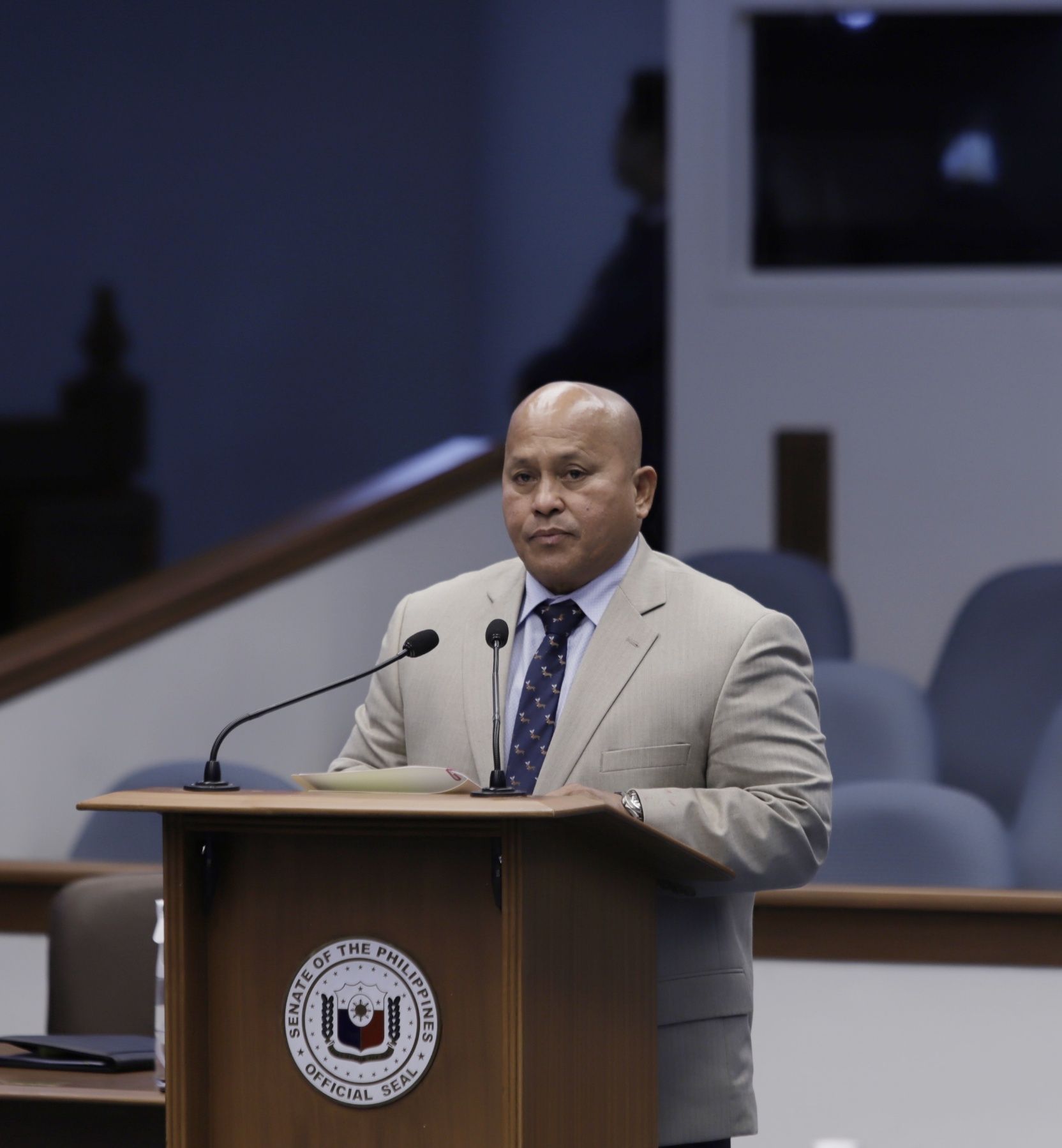Bato stresses need to amend Firearms and Ammunition Regulation Act for safety, accountability
By Dhel Nazario
At A Glance
- Senator Ronald "Bato" Dela Rosa underscored the need to update the 11-year-old Comprehensive Firearms and Ammunition Regulation Act (Republic Act No. 10591) in a bid to "further advocate responsible gun ownership and ensure the government's right to regulate the same".
Senator Ronald “Bato” Dela Rosa underscored the need to update the 11-year-old Comprehensive Firearms and Ammunition Regulation Act (Republic Act No. 10591) in a bid to “further advocate responsible gun ownership and ensure the government’s right to regulate the same".

Dela Rosa, who chairs the Senate Public Order and Dangerous Drugs Committee, is the sponsor of Senate Bill No. 2895, which introduces amendments to RA No.10591 in a bid to make gun ownership more equitable and inclusive.
Under SBN 2895, the chief of the Philippine National Police is authorized to designate a representative to issue a Permit to Carry Firearms Outside Residence (PTCFOR), as well as the issuance and renewal of licenses to manufacture and deal firearms.
Such amendment is “in line with the direction of providing efficient government service” and reducing red tape in the issuance of licenses and permits, the former PNP chief said during his sponsorship speech.
The bill also proposes the addition of individuals or professionals who are exempted from the requirement of a threat assessment certificate, which include allied medical professionals and chief security officers of financial and commercial institutions, and reservists.
SBN 2895 also pushes to fix the validity of licenses to manufacture and deal firearms to a period of ten years.
The measure also proposes the exemption of sports shooters from Comelec authority to transport during the election period. The exemption, however, only applies if they are competing in other countries during an election gun ban.
“It will be subject of course to safeguards such as being accompanied by a police escort to or from the port or airport of arrival or departure,” Dela Rosa said.
“Mr. President, these amendments are not about loosening restrictions or promoting the proliferation of firearms. Ito po ay para lalong isulong ang kultura ng kaligtasan at pananagutan, sa pamamagitan ng paglilinaw ng mga regulasyon, at pagpapalaganap ng responsableng pagmamay-ari ng baril. Isa po itong hakbang tungo sa isang mas ligtas na bansa, kung saan ang firearms ay binibigyan ng respeto at ginagamit ayon sa batas at responsableng mga layunin (This is aimed at further promote a culture of safety and accountability by clarifying regulations and encouraging responsible gun ownership. It is a step toward a safer country, where firearms are respected and used in accordance with the law and for responsible purposes),” the senator also said.
Meanwhile, Dela Rosa also lauded the passage on third and final reading by the Senate of the proposed Chemical Weapons Prohibition Act sends a strong message to the international community that the Philippines is “one with its pursuit towards a world free of chemical weapons".
Senate Bill No. 2871, which was co-authored by Dela Rosa, was approved on Monday with 22 affirmative votes, zero negative and zero abstentions.
The bill aims to ban the development, production, possession, transfer, and the use of chemical weapons in the country.
“In this day and age where anything is possible through the rapid technological advancements and scientific developments, from the proliferation of the cyberattacks to chemical security threats, to say that it is imperative for our country to boost our legislative efforts through measures that will ensure prosecution against those who violate the Convention, is an understatement,” Dela Rosa said during his co-sponsorship speech.
“The passage of this measure, Mr. President, is also a timely tribute to the victims of chemical warfare as the international community recently observed the day of remembrance for all victims of chemical warfare just a few days ago, last November 30,” the senator added.
SBN 2871 also explicitly prohibits the financing of activities related to the development, production, acquisition, stockpiling, retention, use, or transfer of chemical weapons.
Those involved in financing the development, production, acquisition, stockpiling, retention, transfer, or use of chemical weapons shall be meted out the penalty of 20 years imprisonment up to life imprisonment, and a fine ranging between P500,000 to P1 million.
Meanwhile, those who engage in the development, production, acquisition, stockpiling, retention, transfer, or use of chemical weapons shall be penalized with life imprisonment without the possibility of parole, and a fine of not less than P2 million but not more than P5 million. Penalties for other prohibited acts include imprisonment ranging from six years and a fine of up to P2 million.
The former chief of the Philippine National Police said that one law “may not be enough to ensure universality in collective efforts against chemical attacks, but it is one step closer to our pursuit towards international peace and security.”
The Philippines was one of the first signatories of the Chemical Weapons Convention (CWC) in 1993, with the Senate concurring in the Convention’s ratification in 1996.